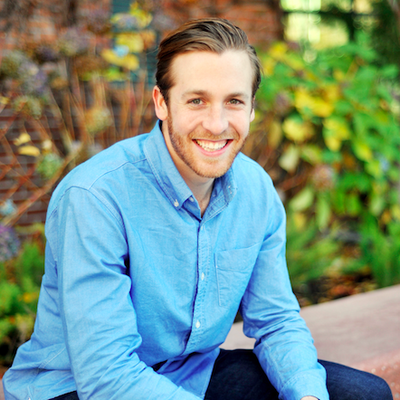An Entrepreneurial Journey: Fireside Chat with Trevor Stuart
Trevor Stuart ’09 zoomed in to speak with the Shea Center team and BC student-entrepreneurs at our final Fireside Chat of the year. Warmed by the faint glow of a dozen laptop monitors, the president and co-founder of Split Software, serial entrepreneur, former investment banker, and all-around great human being took us on an incredible journey. Tracing his path from the Heights to Silicon Valley, Stuart shared lessons learned–and how to find opportunity in a time of crisis.
The Shea Center's Popolo Family Executive Director, Jere Doyle ’87, P ’15, ’21, led the conversation, starting with a question about keeping the company culture alive amid one of the most challenging times in recent history. Here’s what Stuart had to say about this and other topics.
On keeping the company culture alive
“Culture actually helps inform the decisions you make,” said Stuart. “And for us, like every software company, we’ve had to make changes.
“We had to let go of some teammates who were incredibly great people, and you never want to have to see a teammate go,” he said. “But it was how we used our culture and our values to celebrate those individuals and help them land on their feet post-Split.”
For Stuart, that kind of support speaks to Split’s culture. “It’s not only in the day-to-day bonds and tactics,” he said. “Frankly, it’s how we’ve treated each other in what have been some of the hardest times for many of our young teammates’ professional careers.”
On finding opportunity in downturns
Despite the air of uncertainty, Stuart believes it’s “an incredible time” for entrepreneurs thinking about starting a company. In the current economy, he said, many startup costs–like software and staffing–have gone down.
In a bull economy like the U.S. has experienced until recently, Stuart said new companies are expected to “triple, triple, double, double” (triple growth in the first and second years, double in the third and fourth years). “In this economy, you won’t be rewarded for growth,” he said. “You’ll be rewarded for efficiency and survival.”
On starting out in investment banking
Stuart’s first job out of BC was in investment banking, and he would do it again “100%.” Why start there? “When you have the opportunity to work at a large firm, you are taught so much about the fundamentals,” he said.
While he loved the job, Stuart said a growing desire to learn how to “think about markets and identify great companies” pushed him into venture capital. “For me, that was an incredible experience,” he said. “I love investing. I love meeting new entrepreneurs.”
Ultimately, though, he wanted to learn how to build a company. “You know, it's easy to say that you need to raise your price by 2X or you need to lower your acquisition costs,” he said. “It’s really difficult to do those things in practice. That’s why I made that decision to go from investment banking down to venture capital and into a startup.”
On sticking to the fundamentals
Asked whether Split would consider a merger or acquisition during this economic downturn, Stuart’s answer was a definitive “no, not right now.”
“We’re thinking a lot about the fundamentals of the business,” he said. “We’re thinking about our existing customers. We just closed the largest cable company in the country. And so for us it’s about, How do we make that account three times bigger over the course of the year? What product feature sets do we need to build to make that deal successful?
“There are a lot of people interested in what we do,” he added. “But our goal is to stay focused on driving success across our customers.”
On the power of the BC network
Conversations with notable alumni invariably circle back to the BC network. And since we had two West Coast alums on the call (Stuart and Amity Ventures General Partner Peter Bell), we asked about it.
Stuart said when Split was in startup mode, “I sent Peter a note via email and said, ‘Hey, I’m a BC grad living in the Bay working in venture, can we connect? And you know, he replied almost immediately and took that meeting.
“If you ever want to reach out to someone in the BC network or have them open up a door for you, that's what the BC network is about,” he said.
On why failure can be profound
In the early days of Split, Stuart learned an important lesson. “You want everyone in your company to like you,” he said. “But building a company, you realize that you can’t be liked by everybody. You’re going to make decisions that people will disagree with. And I had to grow past that.
“It’s a failure that hit me really hard when I started Split,” he said. “And it was something I had to really grow accustomed to very quickly or it was going to sink me.”
Stuart is grateful for those early lessons and reflects on those days a lot. “It was a personal thing I had to deal with in order to be successful as an entrepreneur and professional.”
On contemplating a BC do-over
Looking back on his BC years, Stuart is philosophical. “You know, you’re in this world for four years,” he said. “You have responsibilities, but they’re not what they're like today. So how do you use that time to read more, to think about yourself, to explore things?
“If I could do something like that again, it would be about exploring things that I don’t have the opportunity to explore at this time in my life,” he added. “Whether that’s theater class, more literature classes, or whatever that may be.
“Take a step back and use that world you’re in to explore more about yourself.”



